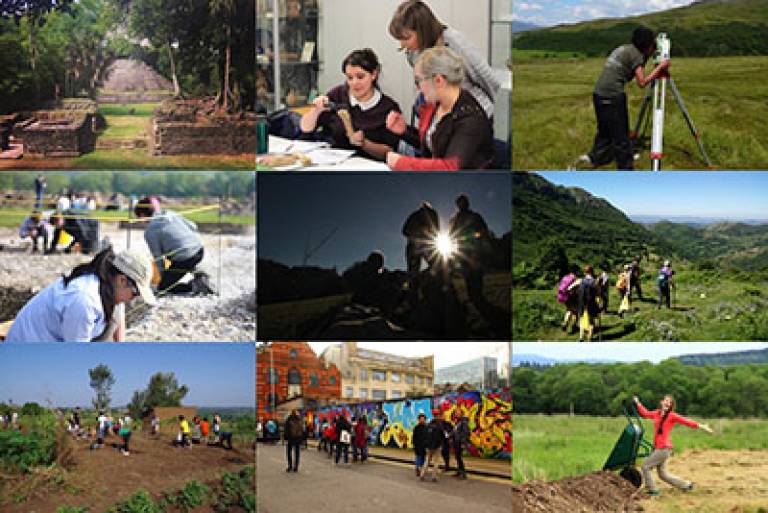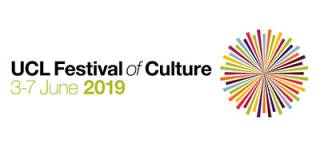UCL Festival of Culture: Short research talks at the UCL Institute of Archaeology
05 June 2019, 6:00 pm–7:00 pm

Come and listen to UCL Institute of Archaeology staff speak on topics ranging from Rapa Nui (Easter Island) to Neanderthals!
This event is free.
Event Information
Open to
- All
Availability
- Yes
Cost
- Free
Organiser
-
UCL Festival of Culture team
Location
-
Archaeology Lecture Theatre G6Institute of Archaeology31-34 Gordon SquareLondonWC1H 0PYUnited Kingdom
Elizabeth Baquedano – ‘Interpreting recent finds of the Aztec ’Flayed Lord’, Xipe Totec’
Recent finds at Ndchjian-Tehuacan, Mexico, indicate that there was a temple dedicated to the Aztec God Xipe Totec (Flayed Lord). This deity was associated with the spring, agricultural fertility and was the patron of goldsmiths. Another important find was the torso of a stone sculpture depicting the god Xipe Totec wearing the flayed skin of a captive. The reasons for the flaying of the captive, – someone taken in the battlefield- were described in detail by 16th century Spanish Conquistadors and Friars. The context of the find and its associated symbolism will be discussed.
Annemieke Milks – ‘Neanderthals and their spears: crossing a threshold’
When in our evolutionary trajectory did we innovate a technology capable of turning our genus into apex predators? Wooden spears have been discovered at European sites that date from 400,000 years ago. They were made and used by hominins, including early Neanderthals, during the Pleistocene and represent the earliest known weapons in the archaeological record. Humans are now entirely dependent on technology for survival, and understanding the development of weaponry provides a window into how we shifted towards a reliance on tools for our food needs. These spears are the first clear weapons designed for hunting large game, and the timing of their appearance coincides with the first evidence for interpersonal violence. Dr. Annemieke Milks will talk about new approaches that have helped us understand what these earliest spears were capable of, offering new interpretations of Neanderthal capabilities.
Sue Hamilton – ‘Easter Island (Rapa Nui): colossal statues and where they are found’
Easter Island (Rapa Nui) is famous for its colossal statues that were carved and set up on monuments during an approximately 300-year period between AD 1200-1500. The talk will explain where they were carved, their incorporation into monuments, and how they relate to a wider tradition of moving stones and creating an everyday architecture of stone in one of the remotest places on earth.
Claudia Näser – ‘Archaeology in the Nile valley today’
UCL's Lecturer in Egyptian Archaeology, Claudia Näser, presents a view on what archaeological fieldwork in the Nile Valley is today. After more than 200 years of excavation - what is there left to explore? And how deal archaeologists working in the region with the legacies of the discipline's colonial past and the political complexities of today? Using examples from her own research, Claudia discusses how archaeology opens new ground for engagement with local and global publics in the 21st century.
All are welcome and there will be an opportunity to ask questions.
The UCL Festival of Culture is a week long programme of free talks, panel discussions, screenings, performances, and tours showcasing the exceptional breadth and quality of the arts, humanities and social sciences at UCL.

 Close
Close

